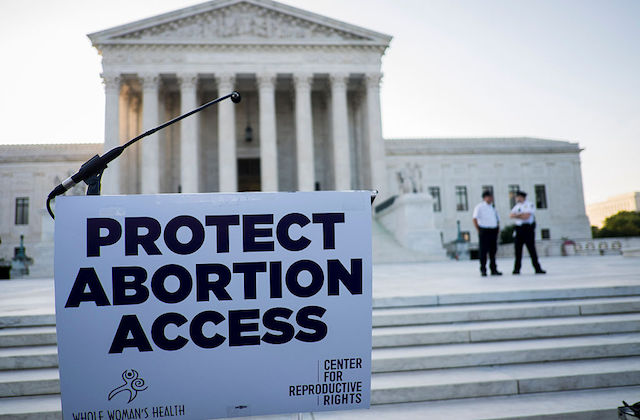The state of Ohio just passed one of the nation’s most restrictive abortion bills. And while it will have immediate effects on women and physicians in the state, it is also a direct threat to Roe v. Wade.
On December 12, the Ohio legislature passed a bill that bans abortions after a fetal heartbeat is detectable, which can happen as early as six weeks into a pregnancy. As Mother Jones reports, “Because many women still don’t know they’re pregnant after six weeks, pro-choice activists say the bill essentially amounts to a ban on abortion.” Physicians face up to a year in prison if they are in violation of the law.
A similar bill was proposed in 2016, but it was vetoed by Governor John Kasich. However, the current bill passed with enough votes to override a veto.
Reports Glamour:
rnt
“When women do not have access to safe, legal abortion nearby, many women will do whatever they can to try to access care,” says Daniel Grossman, M.D., an abortion provider and director of Advancing New Standards in Reproductive Health. “Some women may travel out of state to access legal services. They may be delayed in the process and end up obtaining the abortion later in pregnancy, which may increase the risks and cost of the procedure.” With that in mind, it’s no surprise abortion bans like this one are especially harsh on women of color, low-income families and younger women.
“This is a real threat to abortion access,” Gabriel Mann, communications manager for the Ohio chapter of NARAL Pro-Choice America, told Glamour. “It would be a traumatic thing to force women to carry unintended pregnancies to term.”
This bill also has the potential to help dismantle Roe v. Wade, the landmark 1973 Supreme Court decision that said a constitutional right to privacy means a woman has the right to make her own medical decisions—including whether or not to have an abortion. If the bill is signed into law, legal challenges to its constitutionality could make it the first abortion restriction reviewed by the conservative-majority Supreme Court of the United States (SCOTUS).
Earlier this week, SCOTUS declined to hear a case related to Medicaid funding for Planned Parenthood, an organization often under fire from conservatives because it offers abortion as a service. Chief Justice John Roberts and Justice Brett Kavanaugh sided with the liberal judges in the decision, though both are anti-choice. Many legal scholars note that this likely is not an indication that either supports abortion rights. Reports NPR:
rnt
The court’s decision not to decide strongly suggests that a majority of justices, led by Roberts, would like to keep a low profile this term. In the aftermath of the explosive and divisive Kavanaugh confirmation hearings this fall, and with two new justices on the court in less than a year, Roberts and most of the other justices have gone out of their way to paint the court as a nonpartisan, apolitical institution.
However, should the Ohio bill become law and move through the court system, it could provide SCOTUS with a case that could overturn Roe.
